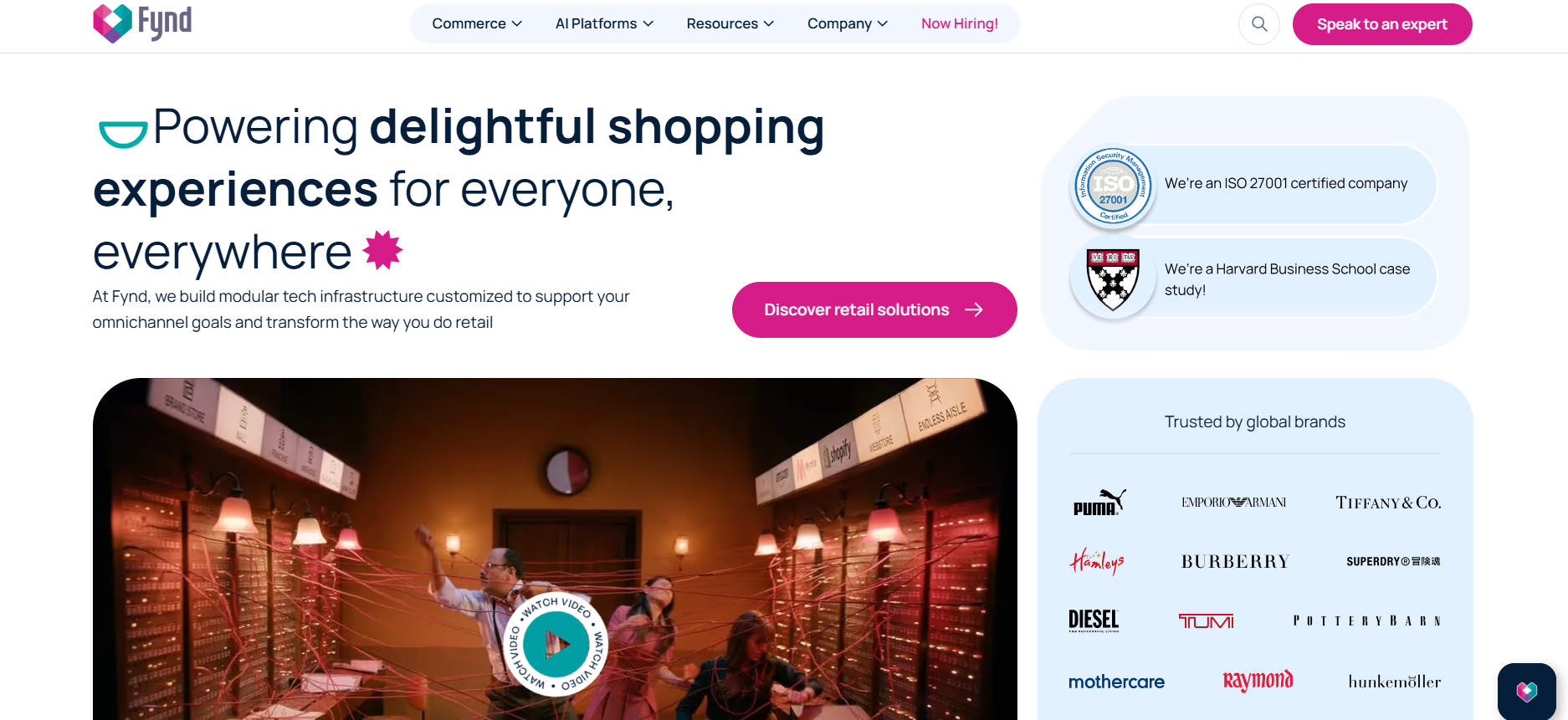Overview
Fynd is an AI-powered platform that simplifies e-commerce by offering tools for inventory management, omnichannel retailing, and seamless online store creation. It helps businesses simplify their operations, manage inventory efficiently, and reach customers across multiple channels. With features like AI-driven analytics and integrations with various marketplaces, Fynd is designed to support retailers in scaling their businesses while optimizing performance.
Key Features
- Omnichannel Retailing: Enables businesses to manage online and offline sales through a single platform, ensuring consistent customer experiences across channels.
- Inventory Management: Offers real-time inventory tracking and updates, minimizing stock issues and improving supply chain efficiency.
- AI-Driven Insights: Provides analytics and recommendations to help retailers optimize pricing, inventory levels, and marketing strategies.
- Customizable Online Stores: Allows businesses to design and launch e-commerce websites with user-friendly tools and built-in integrations.
- Marketplace Integration: Connects with popular marketplaces to expand reach and manage listings, orders, and returns from one dashboard.
- Automated Workflows: Streamlines processes like order fulfillment, shipping, and payment handling for improved efficiency and reduced manual work.
Pros
- Simplifies managing omnichannel sales and inventory.
- Offers powerful analytics for data-driven decisions.
- Easy-to-use tools for building and customizing online stores.
- Integration with leading marketplaces for broader reach.
- Automates key operations for better efficiency.
Cons
- Advanced features might require additional training.
- Limited customization options for highly unique store needs.
- Pricing could be a concern for small retailers.
- Dependence on internet connectivity for optimal performance.

